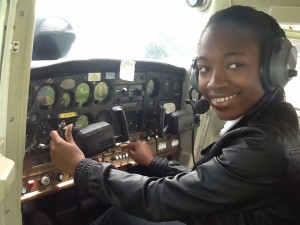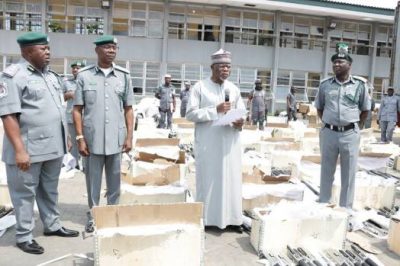Hope and Hopelessness: Growing Local Capacity

If Nigeria wants to develop her indigenous aviation sector, it is advisable that the government make a legislation that indigenes must form greater quota of their employees rather than flooding the sector with expatriates, meanwhile some of the expatriates use the country and the indigenous carriers as training ground.
It is obvious that the best engineer in the United States of America will never be allowed to leave the shores of the country for another country. This simply means that some of those we see as expatriates in this country are obviously not the best engineers in their respective countries. This simply means that most of those we see as expatriates in this country are mere minnows or green horns in their countries.
Nigeria is the only country where a foreigner who knows nothing is sent and they use our aircraft as a training piece of machine and when they become perfect on that aircraft after five years, they return to Europe and work there. Out of about 30 expatriate in Nigeria, only an insignificant percentage of them could be said to be experts among them.
It is costly to recruit foreign pilots and engineers but Nigerian airlines don’t have too many options now. If you want efficient delivery of service, your options are not many,” the operator said.
However, Nigeria’s major carrier, Arik Air, Aero Contractors and Bristow have started training and recruiting indigenous personnel. Every year, Bristow carries out a training programme whereby young, intelligent Nigerians are sent overseas on training; although many of them are not absorbed by the airline after the training, but almost all the beneficiaries of this programme always get engaged both locally and internationally for helicopter and other companies.
The advantage of training indigenous pilots and engineers in not only to ward off the infiltration of foreign pilots and engineers but as well as preparing the country for future challenges that could arise in that sector or outright depletion of the aviation sector of indigenous pilots and engineers.
Some believe that indigenous pilots and engineers are not efficient in their operations but that is not a good reason why Nigerians must be abandoned for their foreign counterparts who use the privilege of coming to the country to train themselves at the expense of myriad of unemployed youth in the country.
However, one airline operator has warned that while it is good to train indigenous skilled personnel and employ same, pointing out that many of the Nigerian pilots and engineers do not exhibit the needed dexterity, expertise and discipline expected from them as professionals. The operator said that for now a serious airline operator may not have many choices when it comes to employing pilots and engineers. His option would be expatriates if he wants efficient delivery of service.
If Nigeria fails to train her indigenes on piloting and engineering works, she will pay dearly for it in the nearest future.
Meanwhile the new Minister of Aviation, Chief Osita Chidoka has resolved to deal more on security and safety in the aviation which he believes will engender all the necessary development that is required in the sector.







